Photographs: Filmicafe.com Arthur J Pais in Toronto
Rani Mukerji was walking on the red carpet, waving at her fans, who were cheering lustily, Rani, We love you, when a reporter told her about an observation her father Ram Mukerji had made over three decades ago.
"Your father had said a director can get enormous satisfaction when he challenges an artist by giving him or her an image-breaking role," the reporter said.
"You have met my father," said Rani, who was in Toronto for the gala world premiere of the comedy Dil Bole Hadippa!, her eyes sparkling.
"He had said how he had summoned the courage to offer a comedy role to an actor famous for his tragic roles," the reporter said.
"Ah, Dilip Kumar," she said. The film, Leader, starred Dilip Kumar and Vyjayanthimala, and remains the only feature film directed by Rani's father.
"In what way did Anurag Singh [the director of Hadippa] challenge you?"
"He had a detailed script and he wanted us to enjoy doing every scene but it wasn't by any means easy. This is a masala film and yet he wanted it to be far above the standard masala movies."
'I had to be credible in whatever I did'
Image: A scene from Dil Bole HadippaShe plays in the movie a cricket crazy Veera who goes around as a man (Veer) because the community does not sanction women playing the game.
Her co-star Shahid Kapoor (Rohan in the movie) has said that he was utterly delighted when he heard that he was cast opposite Rani but had a jolt when he realised that she was playing a man for a good part of the film.
"I had to make sure that though this is a masala film, I had to be credible in whatever I did," she said. She has said that she worked hard thinking and walking like a man for several weeks but learning to play cricket was the toughest challenge.
"You cannot take risks playing a cricketer," she said.
'I trained myself for six to eight months to be a convincing crickter'
Image: A scene from Dil Bole HadippaAudiences in India, and many other countries including Trinidad and Guyana took cricket seriously, she added.
"I trained myself for six to eight months [in Mumbai] making sure that I will be convincing as a cricket player. It is true that we work hard in any film but in some films, you have no choice but to work harder."
Her box-office track hasn't been successful in about two years but Hadippa could put her back in the limelight. Reviewers have praised her work, and in Toronto, her name on the screen received prolonged cheers. Shahid was promoting the film in India, and director Singh walked with Rani on the red carpet.
"Shahid is terrific in the film," he said. "But Rani is something else. Together they have made more magic on the screen than I could have ever imagined."
'Stars easily trump formula'
Image: A scene from Dil Bole HadippaThe New York Times noticed the film too, and particularly Rani's performance. 'While Mr Singh plays Veera's drag more for laughs than for any sexual tension it might produce (Rohan never feels drawn to Veer, as he might in a Sheakespeare play),' The Times wrote, Ms Mukherjee seems to be having the time of her life as Veer/Veera.'
The movie might seem formulaic at times, reviewer Rachel Saltz added, in her story titled, Cross-Dressing to Go to Bat for India and for Love, Too.
'But as often happens in Bollywood, stars easily trump formula. Ms Mukherjee's enthusiasm is catchy, and when Veera delivers a feminist speech at the end, she's moving, too'
'Shahid is relaxed and helps everyone around him relax too'
Image: A scene from Dil Bole HadippaRani said in Toronto that she had a great time working with Shahid. "He is relaxed and helps everyone around him relax too," she said.
How was it to work with a comparatively new director?
"He [Singh] seldom makes you aware of the fact that you are working in a big film," she said laughing.
"At the end of each shot, at least in the beginning of our work, I would ask him, Is the shot okay? Are you satisfied? And he would look at me with a smile and say, Why do you think I signed you for our film?"

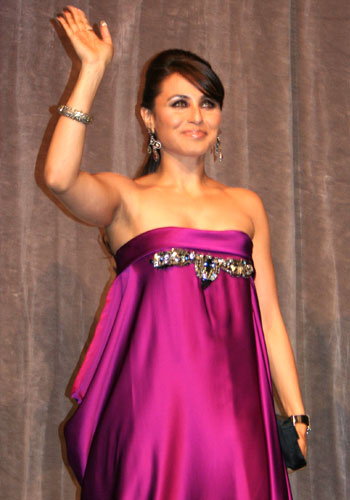
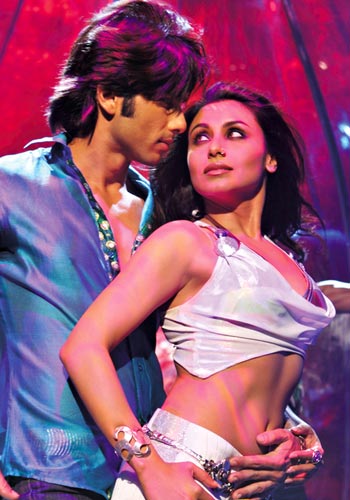
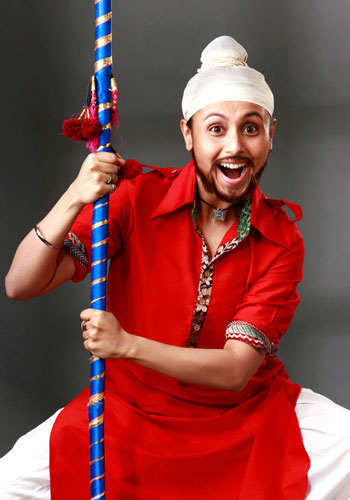
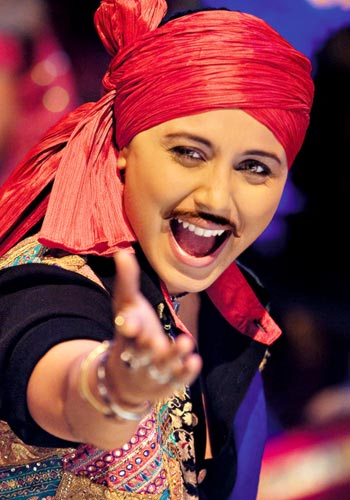
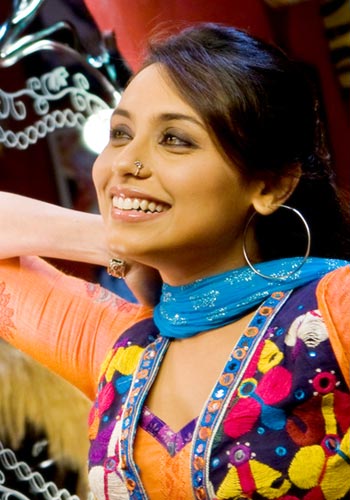
Comment
article